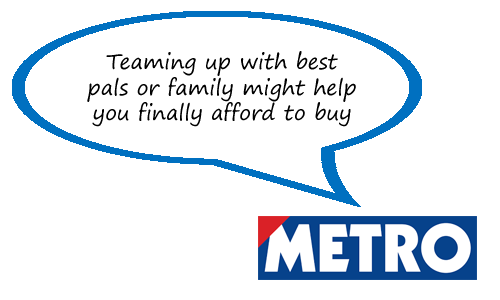Shared Ownership Protection, the leading joint ownership agreement on the market, is a legally binding contract backed with support and guidance services that protect a group of people buying a home together.
Whether you are buying with a partner, friend, family member or through Share a Mortgage, it is essential you have a Shared Ownership Protection to protect you.
Every owner in a group has their own interests to protect and our joint ownership agreement sets these out for the entire group to agree on.
Shared Ownership Protection includes:
- Deed of Trust, Cohabitation Agreement and Inventory Report
- Dispute Resolution Service
- Exit Support Services
- Income Protection Insurance Policy(optional)
Get your joint ownership agreement - Shared Ownership Protection - today!
Why buy as Tenants In Common?
The Shared Ownership Protection must be used when a group owns a property Tenants in Common instead of Joint Tenants . As tenants in common every owner in the group owns a specific share of the property value. This share can be given away, sold or mortgaged. If an owner of the group dies, their share of the property passes to the beneficiaries in their will.
This is not the case with joint tenants - if a sharer dies, their share passes automatically to the other joint tenant and in life, a joint tenant cannot sell independently of the other and both are liable for each other's debts.
Shared Ownership Protection ensures that when buying as tenants in common, joint owners rights are fully protected.
1. Deed of Trust, Cohabitation Agreement, Inventory Report
This section of the Shared Ownership Protection sets a clear mechanism for what happens if an owner dies, the share of the property and restrictions selling an owner’s share. A Deed of Trust will also protect joint owners if one of them becomes bankrupt.
Other things typically included in this, the key part of the joint ownership agreement, are:
- the amount each owner paid towards the deposit;
-
how much each owner is going to contribute towards mortgage repayments;

- the equity split if the property is sold or mortgage ends;
- how much each owner is going to contribute towards home insurance, purchasing costs (e.g., stamp duty, solicitors’ fees, searches), maintenance (e.g., decorating costs, roof repairs, etc), and improvements;
- how the property will be valued if one owner wants to sell;
- a right of first refusal among the owners in the event one owner wants to sell;
- what you might do if one owner wants to sell and the other doesn’t want to;
- what you do if a owner wants to move out, but remain a co-owner of the property;
- what happens if a owner dies;
- property rules (e.g., concerning guests, maintenance, etc);
- use of common areas;
- payment of bills and taxes;
- re-mortgaging, selling, and whether leasing the property or any part of it is permitted;
- visitors (e.g., how long they can stay in the property, behaviour, changes in marital statuses etc);
- how rental income from a tenant, if any, is divided;
- how much rent a resident owner pays to a non-resident owner, if applicable;
- what happens if one owner fails to make payments (where will the money come from and how will it affect each owner’s contributions towards the property?);
- notice periods (to vacate, etc);
- dispute resolution, mediation, etc; and
- an inventory of any new shared items of furniture and furnishings.
2. Dispute Resolution Service
Can't agree with the joint owner of the property? Don't worry, you can use the Dispute Resolution Service to help mediate the issue. Regardless of the problem, you'll get support from trained mediators to help get back to happy living.
3. Exit mechanisms
Our exit mechanisms help you decide how anyone can leave the property if the need to arises. They help you decide how and when anyone can leave; even setting out a mechanism to leave should you want to go and the joint owners want to stay.
4. Income Protection Insurance (Optional)
Income Protection Insurance is designed to replace an owner’s income should they be unable to work due to illness, accidental injury or redundancy.
With income protection, they will not need to use their savings or rely on state benefits if they are unable to work. People take out income protection cover for a number of different reasons, including:
1. To protect the cost of mortgage or rent payments
2. To protect their loan, credit card or car finance payments
3. To meet their monthly commitments, like utility bills, food bills or internet
4. To protect their general lifestyle like holidays, school fees or gym membership
Share a Mortgage’s approved insurance provider will give reassurance to those with Shared Ownership Protection.















